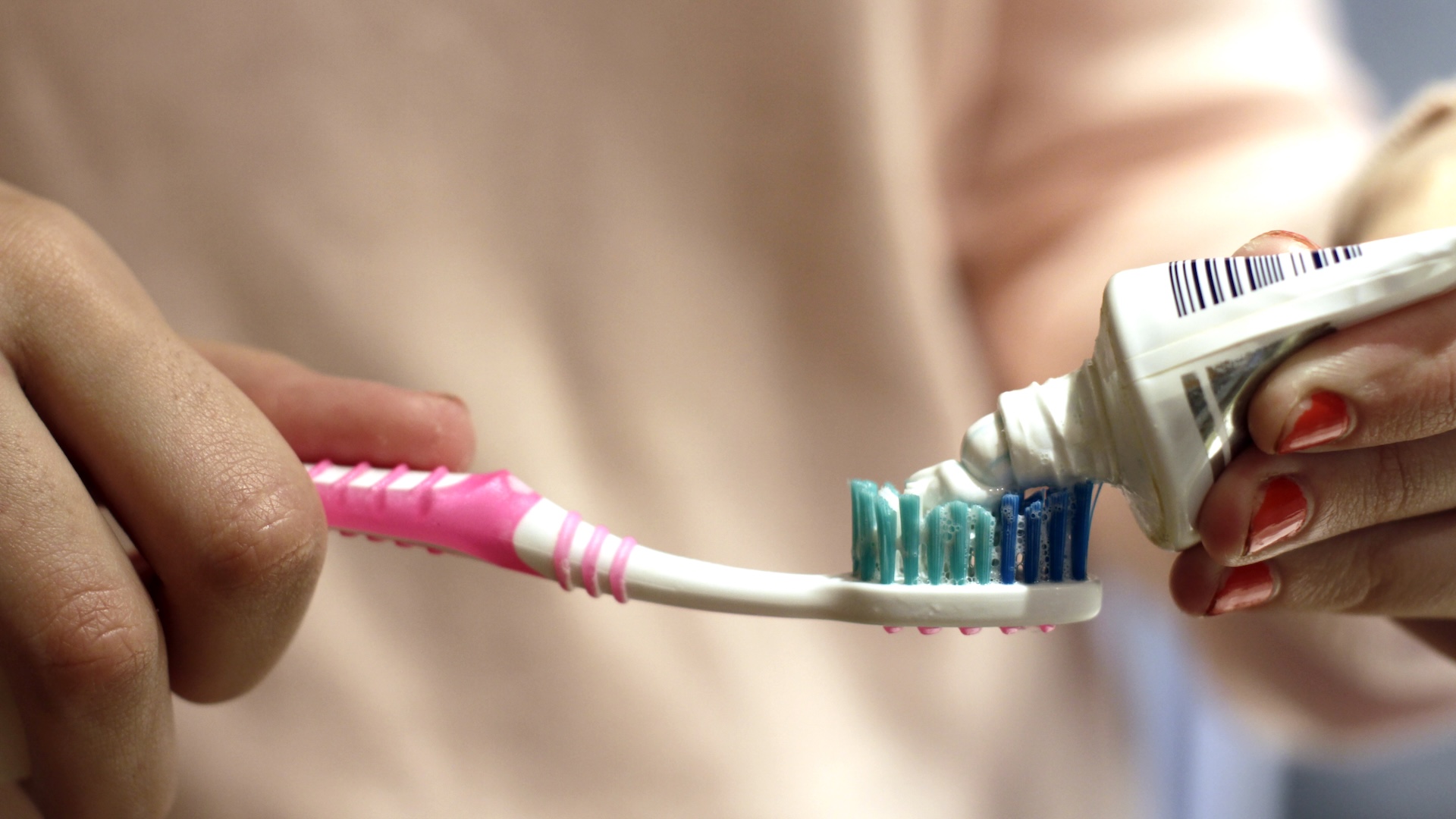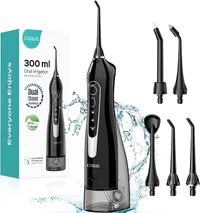Why does your breath sometimes stink even after brushing your teeth?
You might brush twice a day but still struggle with stinky breath. Why is that?

Get the world’s most fascinating discoveries delivered straight to your inbox.
You are now subscribed
Your newsletter sign-up was successful
Want to add more newsletters?

Delivered Daily
Daily Newsletter
Sign up for the latest discoveries, groundbreaking research and fascinating breakthroughs that impact you and the wider world direct to your inbox.

Once a week
Life's Little Mysteries
Feed your curiosity with an exclusive mystery every week, solved with science and delivered direct to your inbox before it's seen anywhere else.

Once a week
How It Works
Sign up to our free science & technology newsletter for your weekly fix of fascinating articles, quick quizzes, amazing images, and more

Delivered daily
Space.com Newsletter
Breaking space news, the latest updates on rocket launches, skywatching events and more!

Once a month
Watch This Space
Sign up to our monthly entertainment newsletter to keep up with all our coverage of the latest sci-fi and space movies, tv shows, games and books.

Once a week
Night Sky This Week
Discover this week's must-see night sky events, moon phases, and stunning astrophotos. Sign up for our skywatching newsletter and explore the universe with us!
Join the club
Get full access to premium articles, exclusive features and a growing list of member rewards.
Brushing your teeth twice a day is one of the pillars of oral hygiene — but for many people, it doesn't necessarily solve the problem of bad breath. Dentists say that halitosis, or bad breath, often has causes that brushing alone can't address.
So why can breath sometimes stink even after brushing, and what can be done about it?
According to Dr. Jaclyn Tomsic, a board-certified oral and maxillofacial surgeon and oral health expert at the oral care company Better & Better, one of the simplest and most overlooked reasons for bad breath is skipping flossing. "The food we eat easily gets trapped between our teeth," Tomsic told Live Science in an email. Brushing but not flossing allows food debris to sit between your teeth, where it slowly decomposes. This decomposition can start happening within days, and it's a common cause of bad breath, she said.
COSLUS C20 Water Flosser: Remove up to 3x more plaque and experience a professional-grade deep cleaning with the COSLUS C20 Water Flosser. The C20 Water Flosser offers unique, dual-threaded water pulse technology capable of producing 1400–1800 high-pressure pulses per minute for a daily, office-visit-worthy deep clean without leaving your home.
Customize your flossing experience with three operation modes and multiple pressure settings, plus five interchangeable nozzles. The C20 Water Flosser is ergonomic, waterproof, and user-friendly with USB charging, with a battery capable of supporting 30 days of use per 3-hour charge. Use discount code: JIC3JNIM for up to 52% off.
Her advice is to floss once a day. "Flossing reaches the areas that brushing doesn't — so take the time to brush and floss!" While she prefers traditional string floss, Tomsic said that floss picks and water flossers also work. The key is to use them consistently.
But even if you both brush and floss your teeth, your mouth may still harbor odor-causing bacteria.
"Sulfur-producing bacteria thrive on the surface of the tongue and in the back of the throat," Dr. Fatima Khan, a dentist and co-founder of the probiotic mouthwash company Riven Oral Care, told Live Science in an email. These bacteria break down proteins from food very quickly and can release foul-smelling molecules, called volatile sulfur compounds, from the back of the tongue and throat, she said. (Volatile sulfur compounds are the gases responsible for the classic "rotten egg" smell.)
Related: How does plaque cause cavities?
Get the world’s most fascinating discoveries delivered straight to your inbox.
Dr. Jenna Chimon, a lead cosmetic dentist at Long Island Veneers, often sees patients who brush their teeth but neglect other important aspects of oral hygiene. "If they're not cleaning their tongue or brushing their teeth properly, bacteria can remain and emit odors, no matter how minty their toothpaste is," Chimon told Live Science in an email.
Her initial guidance for patients who seek help for bad breath is for them to improve their oral hygiene routine. "Cleaning the tongue is super important, either with a tongue scraper or the brush, as is flossing daily."
Another possible cause of bad breath is dry mouth, often caused by taking certain medications (such as antihistamines), mouth breathing or use of antiseptic mouthwash, said Khan. Saliva acts as the mouth's natural cleanser, rinsing away food particles and bacteria. Without enough saliva, your mouth can't clean itself properly, leading to bacterial buildup and bad breath.
Hydration can be another issue that needs to be improved, said Chimon.
Regular coffee drinking can make the problem worse because caffeine lowers saliva production for two hours after ingestion, contributing to dry mouth and bad breath, studies suggest.
Bad breath can also stem from the food you eat. Strong-smelling foods like garlic and onion are absorbed into the bloodstream, travel to the lungs and are exhaled with your breath. Smoking — both tobacco and weed — also causes bad breath, even after brushing, because smoke particles linger in your mouth, throat and lungs. It also dries out your mouth, creating a breeding ground for odor-causing bacteria.
Some medical conditions can also cause bad breath. Gum disease is one of the most common, Chimon said. "Inflammation or infection in the gums creates pockets where bacteria live and grow, and causes bad breath." (People who smoke have a higher risk of developing gum disease than those who do not.)
Besides proper oral hygiene to decrease gum inflammation, a simple home remedy to guard against gum disease is rinsing out the mouth with warm salt water, Khan said. "Saltwater not only cleanses the affected area but also reduces inflammation and fosters an environment that inhibits pathogenic bacterial growth."
Beyond oral health, sinus problems are another often-overlooked cause of bad breath, Chimon said. For instance, sinus issues that cause post-nasal drip, as well as gastric reflux, which is when stomach acid comes up and can irritate the nasal passages and sinuses, "can lead to foul breath," Khan explained.
Additionally, diabetes that isn't adequately managed with blood-sugar control can trigger ketoacidosis, a state in which the body burns fat instead of glucose. This produces a distinctive fruity odor on the breath.
This article is for informational purposes only and is not meant to offer medical advice.

Clarissa Brincat is a freelance writer specializing in health and medical research. After completing an MSc in chemistry, she realized she would rather write about science than do it. She learned how to edit scientific papers in a stint as a chemistry copyeditor, before moving on to a medical writer role at a healthcare company. Writing for doctors and experts has its rewards, but Clarissa wanted to communicate with a wider audience, which naturally led her to freelance health and science writing. Her work has also appeared in Medscape, HealthCentral and Medical News Today.
You must confirm your public display name before commenting
Please logout and then login again, you will then be prompted to enter your display name.
 Live Science Plus
Live Science Plus






